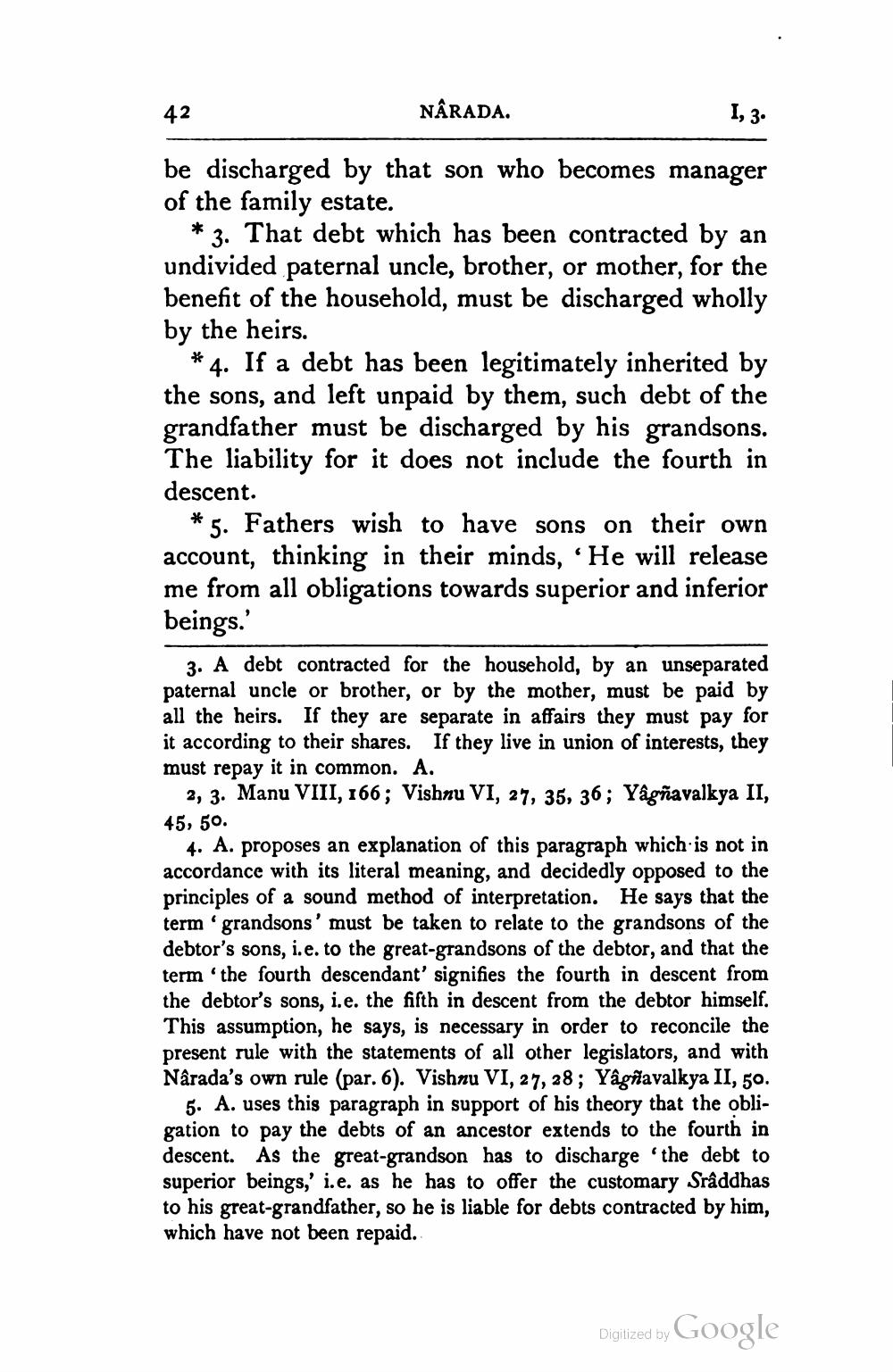________________
42
NÂRADA.
1, 3.
be discharged by that son who becomes manager of the family estate.
* 3. That debt which has been contracted by an undivided paternal uncle, brother, or mother, for the benefit of the household, must be discharged wholly by the heirs.
* 4. If a debt has been legitimately inherited by the sons, and left unpaid by them, such debt of the grandfather must be discharged by his grandsons. The liability for it does not include the fourth in descent.
* 5. Fathers wish to have sons on their own account, thinking in their minds, 'He will release me from all obligations towards superior and inferior beings.'
3. A debt contracted for the household, by an unseparated paternal uncle or brother, or by the mother, must be paid by all the heirs. If they are separate in affairs they must pay for it according to their shares. If they live in union of interests, they must repay it in common. A.
2, 3. Manu VIII, 166; Vishnu VI, 27, 35, 36; Yagñavalkya II, 45, 50.
4. A. proposes an explanation of this paragraph which is not in accordance with its literal meaning, and decidedly opposed to the principles of a sound method of interpretation. He says that the term 'grandsons' must be taken to relate to the grandsons of the debtor's sons, i.e. to the great-grandsons of the debtor, and that the term 'the fourth descendant' signifies the fourth in descent from the debtor's sons, i.e. the fifth in descent from the debtor himself. This assumption, he says, is necessary in order to reconcile the present rule with the statements of all other legislators, and with Narada's own rule (par. 6). Vishnu VI, 27, 28; Yâgħavalkya II, 50.
5. A. uses this paragraph in support of his theory that the obligation to pay the debts of an ancestor extends to the fourth in descent. As the great-grandson has to discharge the debt to superior beings,' i.e. as he has to offer the customary Sraddhas to his great-grandfather, so he is liable for debts contracted by him, which have not been repaid.
Digitized by Google




